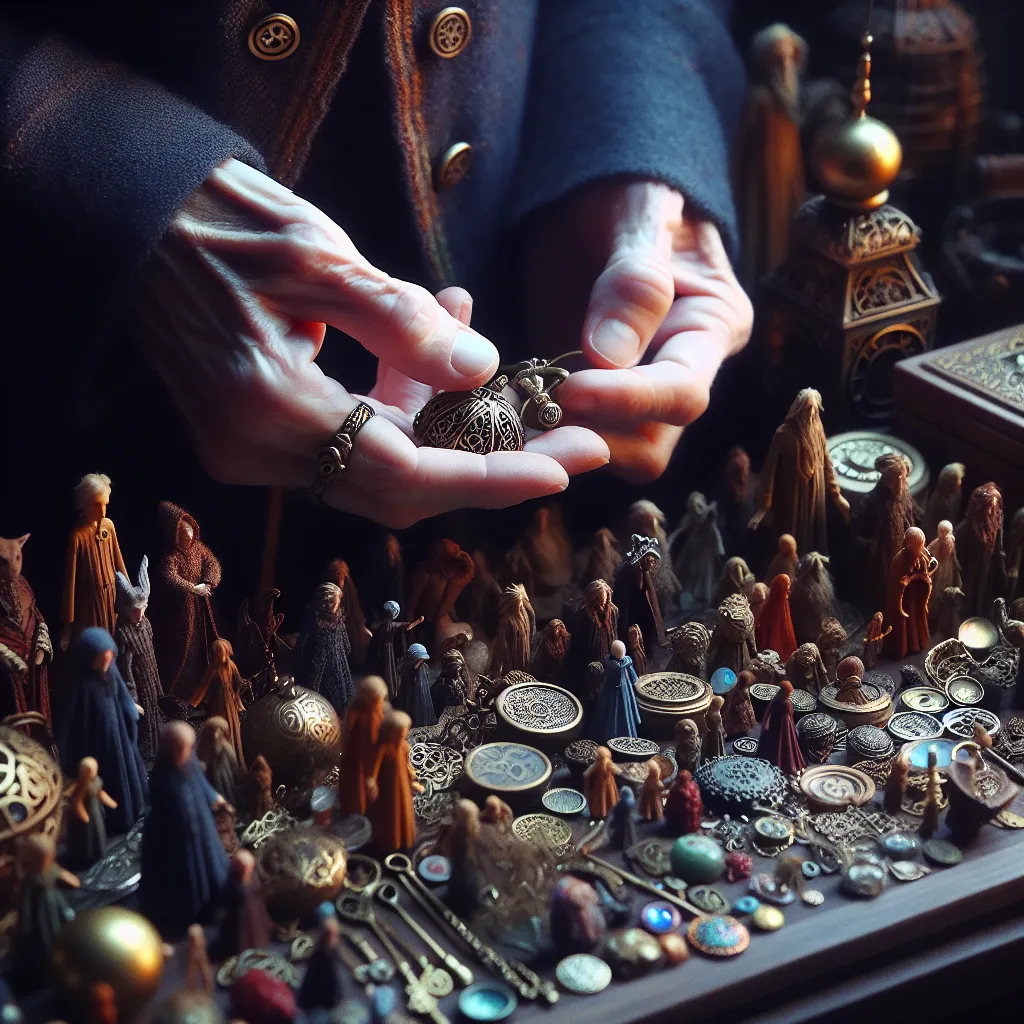The Joy of Collecting: Understanding the Psychology Behind Trinket Collection
Collecting trinkets can bring immense joy and satisfaction to individuals who are drawn to the art of collecting. The psychology behind trinket collection reveals that this hobby is often fueled by the joy of hunting for unique and rare items, the thrill of adding new pieces to a growing collection, and the sentimental value attached to each trinket. Psychologists suggest that the act of collecting trinkets taps into the human desire for discovery and the pleasure of ownership.
Furthermore, the joy of collecting trinkets is deeply rooted in the emotional connection that individuals form with their collections. Each trinket holds a story, a memory, or a special meaning that adds to the overall appeal of the collection. This emotional attachment can provide a sense of nostalgia, comfort, and fulfillment, contributing to the psychological benefits of trinket collection.
Moreover, the act of organizing and displaying a collection of trinkets can provide a sense of pride and accomplishment. The visual appeal of a well-curated trinket collection can serve as a source of aesthetic pleasure and self-expression, further enhancing the joy of collecting. Additionally, sharing one’s collection with others can foster a sense of community and connection, reinforcing the positive psychological impact of trinket collection.
In conclusion, the joy of collecting trinkets is intricately connected to the human psyche, encompassing the thrill of acquisition, the emotional significance of each item, and the sense of pride in displaying a cherished collection. Understanding the psychological motivations behind trinket collection sheds light on the deeply fulfilling nature of this hobby and its potential to enhance overall well-being.
Unveiling the Fascination: The Psychological Motivations for Collecting Small Keepsakes
Unveiling the Fascination: The Psychological Motivations for Collecting Small Keepsakes
The act of collecting trinkets or small keepsakes is a fascinating phenomenon that has intrigued psychologists for decades. The motivations behind this behavior can be attributed to various psychological factors, shedding light on the reasons why individuals are drawn to accumulating these seemingly insignificant items.
One of the key psychological motivations for collecting small keepsakes is the inherent human desire for connection and nostalgia. These items often hold sentimental value, serving as reminders of specific people, places, or moments in time. By surrounding themselves with these keepsakes, individuals are able to create a sense of continuity and permanence, linking past experiences with their present lives.
Moreover, the act of collecting trinkets can also be linked to the concept of “psychological ownership.” Psychologists have found that people tend to place a higher value on items that they perceive to be their own, regardless of their actual monetary worth. This sense of ownership can provide individuals with a sense of control and stability, particularly in the face of life’s uncertainties.
Another psychological factor that drives the desire to collect small keepsakes is the concept of identity formation. These items often serve as extensions of an individual’s identity, reflecting their interests, values, and personal history. As such, the act of collecting trinkets can be a way for individuals to express and reaffirm aspects of their self-concept.
In addition to these psychological motivations, the act of collecting small keepsakes can also provide a sense of accomplishment and purpose. For some individuals, the process of curating and organizing a collection can be a source of pride and fulfillment, contributing to their overall well-being and sense of satisfaction.
Overall, the psychology behind collecting trinkets is a multifaceted and nuanced phenomenon that encompasses a range of psychological motivations. By understanding the underlying reasons for this behavior, psychologists can gain valuable insights into the intricacies of human cognition, emotion, and behavior.
The Emotional Connection: Exploring the Psychological Impacts of Trinket Collecting
Trinket collecting is often more than just a hobby – it can be an emotional and psychological experience that deeply impacts individuals. The psychological impacts of trinket collecting are closely linked to the emotional connections that people form with their collections. These emotional connections are rooted in the human need for nostalgia, security, and self-expression.
Nostalgia plays a significant role in trinket collecting, as individuals often associate their trinkets with specific memories or periods in their lives. This emotional attachment to the past can provide comfort and a sense of continuity in the face of life’s uncertainties. Moreover, trinket collecting can serve as a form of self-expression, allowing individuals to showcase their interests, values, and personal identity through their collections.
Furthermore, the act of acquiring and displaying trinkets can also fulfill psychological needs for accomplishment and control. The thrill of finding a new trinket and the pride of adding it to a collection can stimulate feelings of achievement and mastery. Additionally, arranging and curating trinkets provides a sense of control and organization in a world that often feels chaotic and unpredictable.
In conclusion, the emotional connection to trinket collecting delves deep into the human psyche, fulfilling psychological needs for nostalgia, self-expression, accomplishment, and control. Understanding these psychological impacts can shed light on the profound significance of trinket collecting in people’s lives.
Unlocking the Mind: Delving into the Psychology Behind Trinket Accumulation
Collecting trinkets is a common hobby that holds a deeper psychological significance. The act of acquiring and accumulating small, often insignificant objects may seem trivial, but it can reveal a lot about our inner thoughts and motivations. Understanding the psychology behind trinket accumulation can provide valuable insights into human behavior and the inner workings of the mind.
For many individuals, collecting trinkets serves as a way to establish a sense of identity and control. The act of seeking out and acquiring these items can provide a sense of accomplishment and fulfillment. Additionally, the sentimental value attached to trinkets can evoke positive emotions and serve as a source of comfort in times of distress. The act of collecting also taps into our innate desire for exploration and discovery, stimulating the brain’s reward system and providing a sense of excitement and fulfillment.
Furthermore, trinket accumulation can be linked to deeper psychological principles such as attachment and nostalgia. These small objects often hold personal significance, representing specific memories, experiences, or individuals. As a result, collecting trinkets can be a way of connecting with the past and preserving cherished moments, creating a sense of continuity and stability in the face of life’s uncertainties.
Understanding the psychology behind trinket accumulation sheds light on the complex mechanisms that drive human behavior. By delving into the motives and emotions associated with collecting, we gain valuable insights into the human psyche and the intricate ways in which we seek meaning and fulfillment in our lives.

